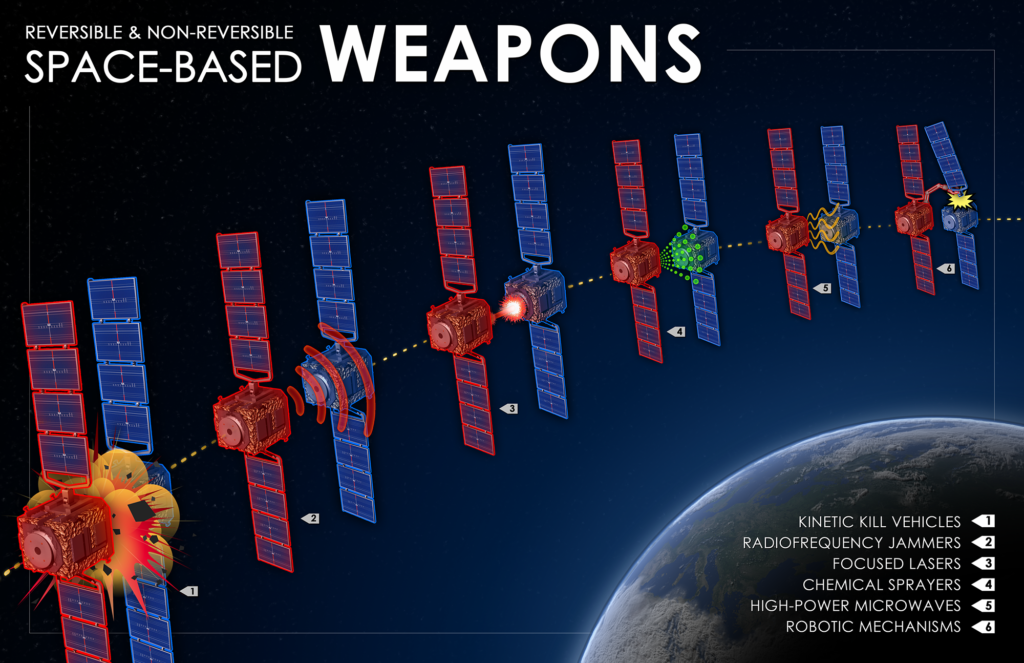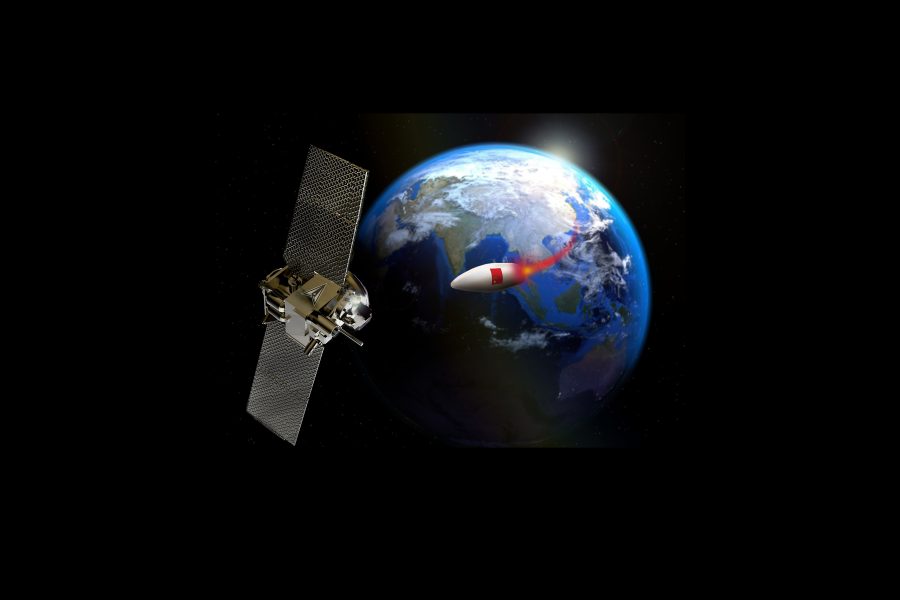A space industry executive warned that the U.S military may have only brief moments of near-complete control of the space domain, so it must be ready to act as a team to exploit those moments to the fullest.
“The thinking that we can attain and maintain space superiority is really fraught with hubris,” Amy Hopkins, vice president and general manager of national security space for Peraton, said at AFA’s Air, Space & Cyber Conference on Sept. 11.
“The complex evolving nature of the battlespace requires us to acknowledge that there’s a temporal aspect to this,” Hopkins explained. “We are only going to really have episodic instances of space superiority. Therefore I think the question should be: ‘Are we prepared and trained to maximize the effects when we have that? And do we know what to do when we don’t?’”
Hopkins shared her thoughts during a panel on space order of battle, one of Air Force Secretary Frank Kendall’s operational imperatives. The challenge of that imperative is to protect space capabilities, protect military space services, and defeat adversary space capabilities. Defeating adversary capabilities may help achieve space superiority, which a 2020 joint and a 2021 Air Force doctrine publication defined as “the degree of control in space by one force over another that permits the conduct of operations at a given time and place without effective interference from opposing forces.”
The idea of space superiority is similar to that of air superiority, but the Air Force publication cautioned that the state of desired control “may not always be achievable, particularly against a peer or near-peer adversary.” Part of the challenge is that “place” does not refer to controlling physical space, but instead to specific terrestrial areas impacted by space operations.
“The ability to achieve space superiority or supremacy is impacted by the laws of physics, international law, and existing policy,” the publication explained. For example, it may not be in America’s interest to fully deny space capabilities to adversaries, when denying them may cause collateral effects to friendly forces or third-party users.
On top of political concerns, China boasts “the most rapidly developing counterspace capabilities of any nation,” retired Col. Charles S. Galbreath, senior resident fellow for space studies at the Mitchell Institute, wrote in a June research paper. Those capabilities include ground-launch kinetic missiles, ground-based electronic warfare tools, and satellites that can attack U.S. assets in orbit.

To defend against those attacks, Galbreath called for the Space Force and industry to work together to quickly develop defensive and offensive capabilities. He also called for more Space Force funding from Congress; clear guidance and counterspace force design; better Space Force situational awareness; telemetry, tracking, and control of satellites; and test and training infrastructure.
The rest of the joint and coalition forces must also be ready to exploit the opportunity if space superiority is achieved, Hopkins said.
“Can we execute a joint and coalition air, sea, land, subsurface beating with such magnitude during that window that we can achieve the maximum effects and really no adversary can then stay ahead of what we have prevented forward?” asked Hopkins, who called on the Space Force to train and exercise “to this idea of the temporal aspect of space superiority—when we have it and when we will not have it.”
In the meantime, the Space Force is working hard to make its own capabilities more difficult to deny. By building larger constellations of satellites, the service hopes to create networks that can withstand losses and make destroying individual spacecraft not worth the cost. The Space Force is also working to make its ground and launch systems more resilient to cyberattack.
Hopkins and her co-panelists also called for making commercial capabilities a key part of the wider space security posture, in line with what other space industry executives have said in the past.
“We have to train how we’re going to fight [and] we all know we’re going to leverage commercial capabilities … everything from rapid launch” to satellite communications and intelligence, surveillance and reconnaissance, Hopkins said. “The more you can incorporate commercial partners into the training and the exercises, the better-positioned we will be for the fight that is yet to come.”
